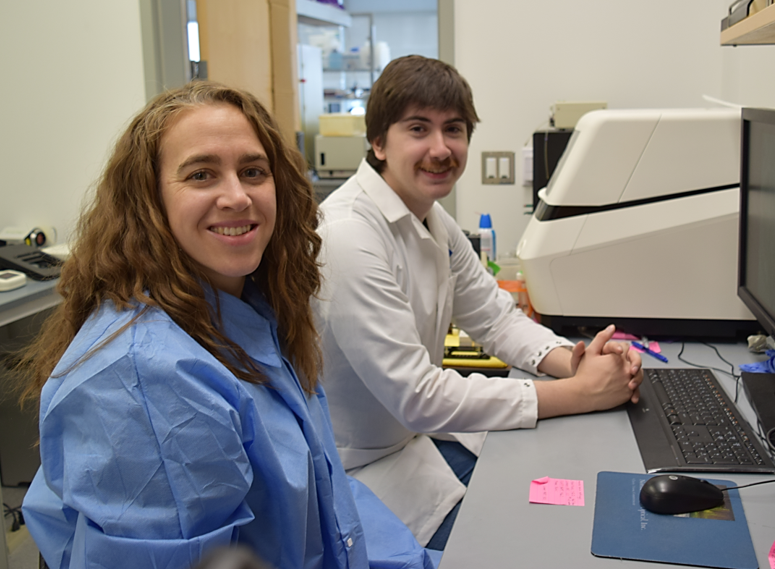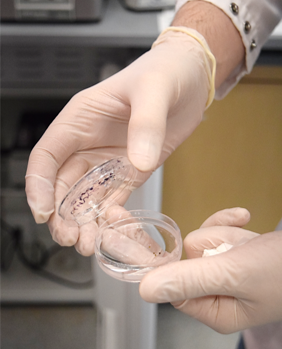BLaST celebrates Gabriel Miller as March 2024 Scientist of the Month

BLaST Scholar Gabriel Miller in the Weltzin Lab, March 2024.
Miller’s current research project, “Effects of Rabies Viral Glycoprotein Binding on
Human and Dog α7 Nicotinic Receptors," assesses whether the glycoprotein is selective
for a specific host, human or canine, nicotinic receptor. The rabies virus enters
the nervous system by interacting with molecular targets on host cells to modify behavior,
and trigger virion receptor-mediated endocytosis by poorly understood mechanisms. This study examines
the activity of the rabies virus glycoprotein on nicotinic acetylcholine receptor
subtypes that are expressed on the plasma membrane of neurons in brain regions involved
in rabid animal behavior.
Miller’s work is related to a larger, NIH-funded project under UAF Assistant Professor
Maegan Weltzin (former 2018-2020 BLaST Faculty Pilot Project awardee) which examines
a modified rabies glycoprotein that facilitates the virus’ interaction with the nicotinic
receptor on neurons to improve drug delivery. Miller’s previous project focused on
the "Effects of siRNA silencing on VDR expression and Oxidative Stress Tolerance in
Microglia,“ where he assessed the targeted silencing of hydrogen sulfide which produced
metabolic pathways that would impact microglial cells’ ability to tolerate oxidative
stress.
Miller shared, “My interest in neuroimmunology comes from being exposed to a medical
environment at an early age and seeing firsthand the shortcomings in current treatments
in neurological conditions. My mom works as a medical coder, and we often traveled
to the Alaska Native Medical Center, the statewide Native Health hospital in Anchorage,
for treatment of several chronic medical conditions in our family. Further understanding
how the nervous system reacts to damage, affecting the immune pathways, and why it
can lead to worsened recovery in disease and traumatic injury is key to developing
better treatments to meaningfully improve the living conditions of patients.” Miller
presented initial findings at the September 2023 Alaska IDeA Network of Biomedical
Research Excellence Retreat in Talkeetna, Alaska; and at the Alaska Interior Medical
Education Summit in February 2024.

Miller with his faculty mentor Maegan Weltzin, UAF, March 2024.

Miller sharing one of his samples, Fairbanks, AK.


